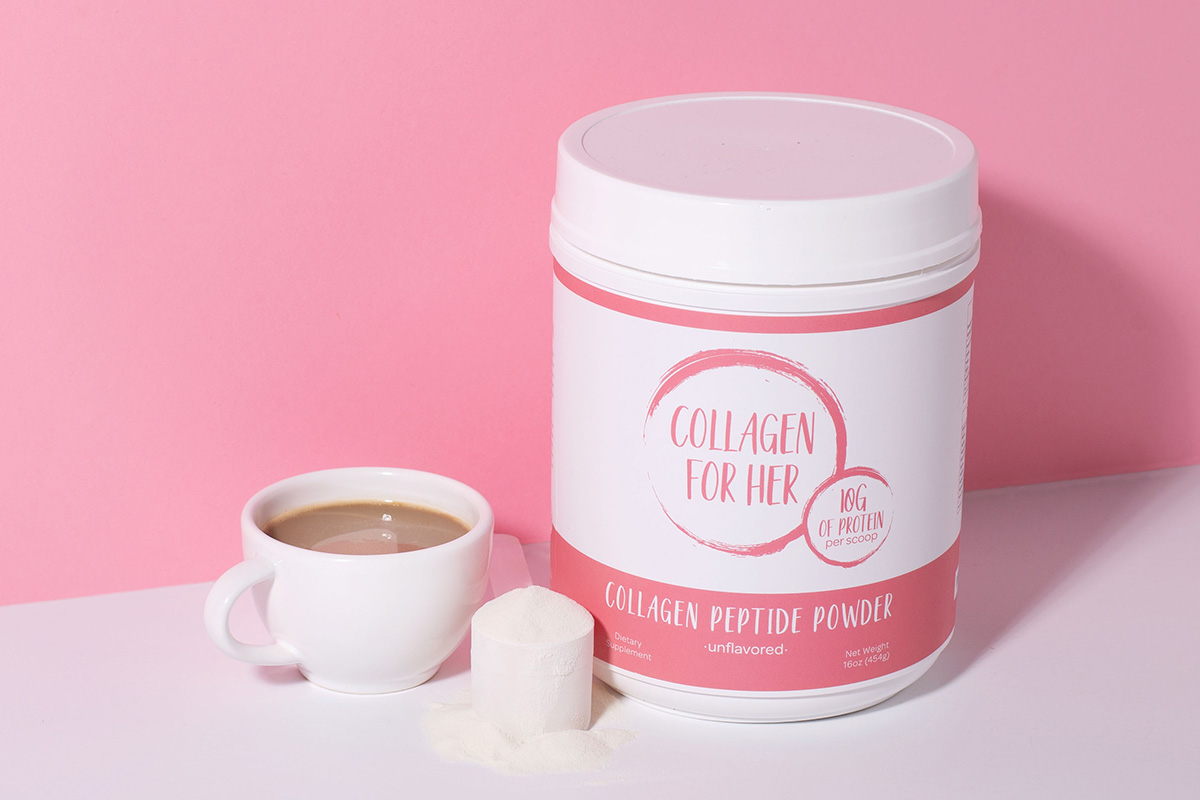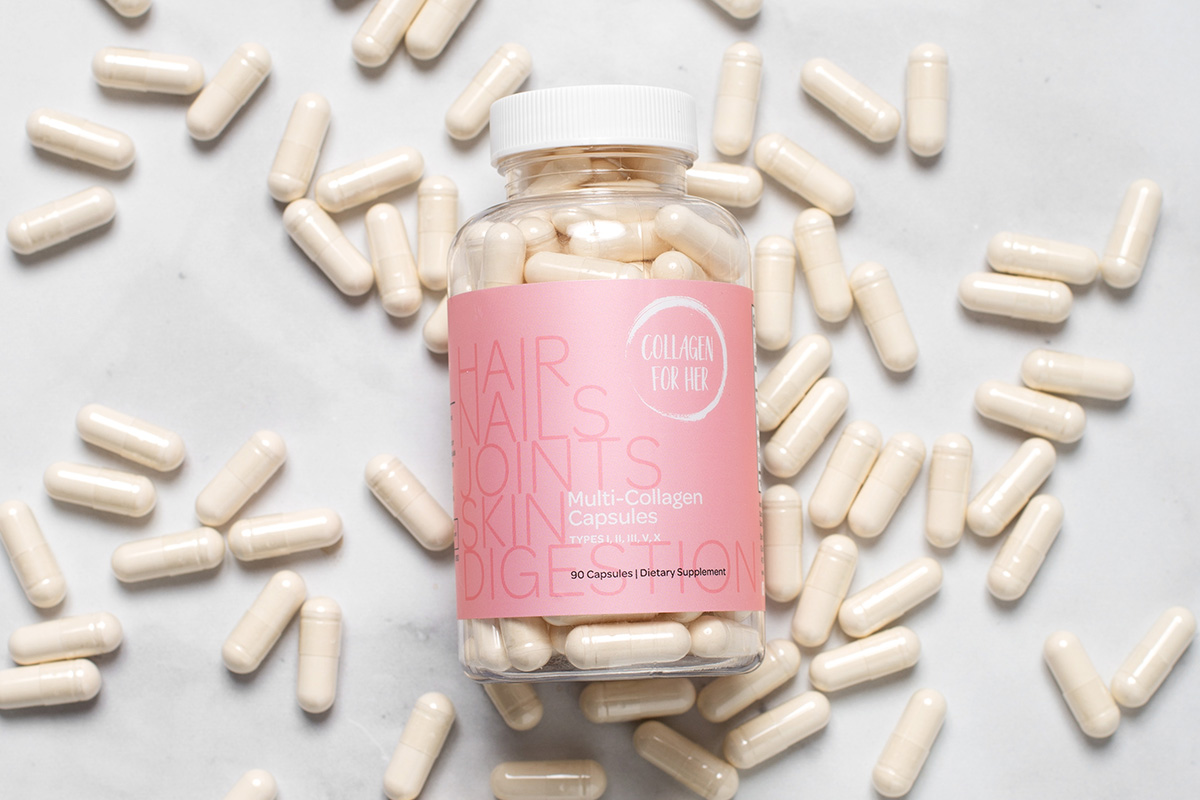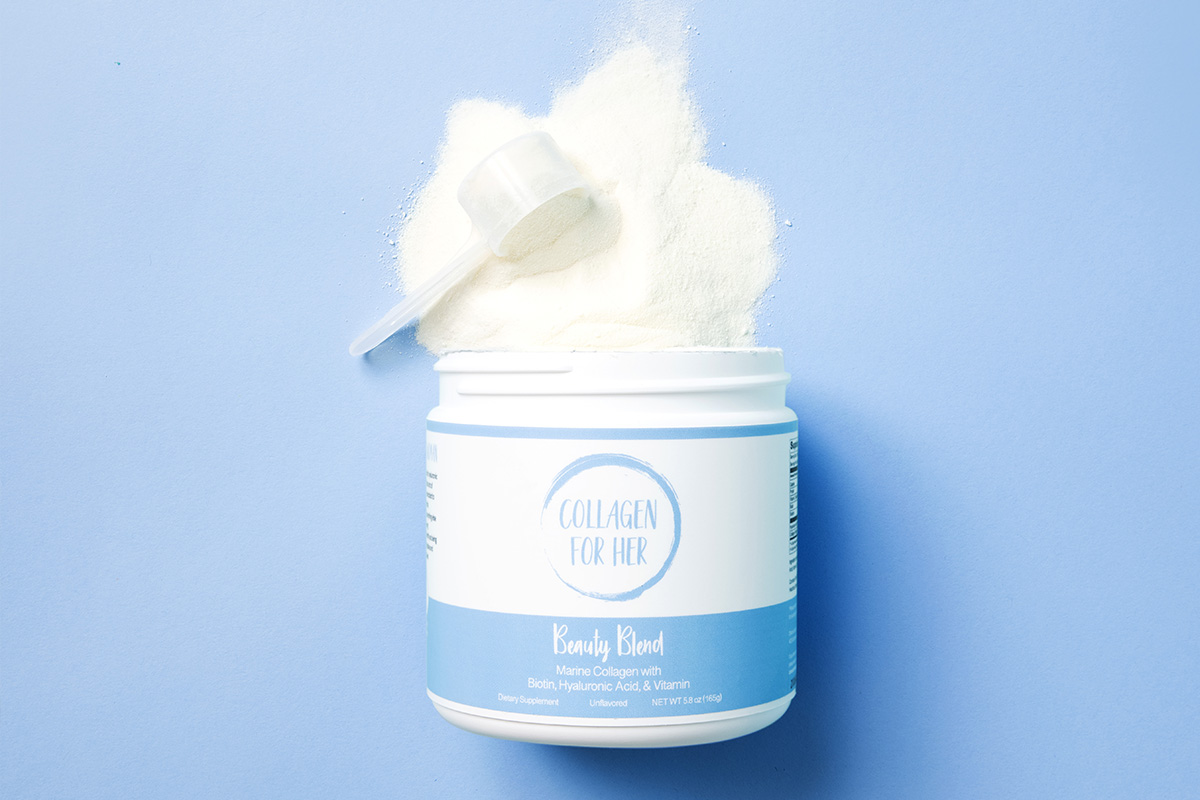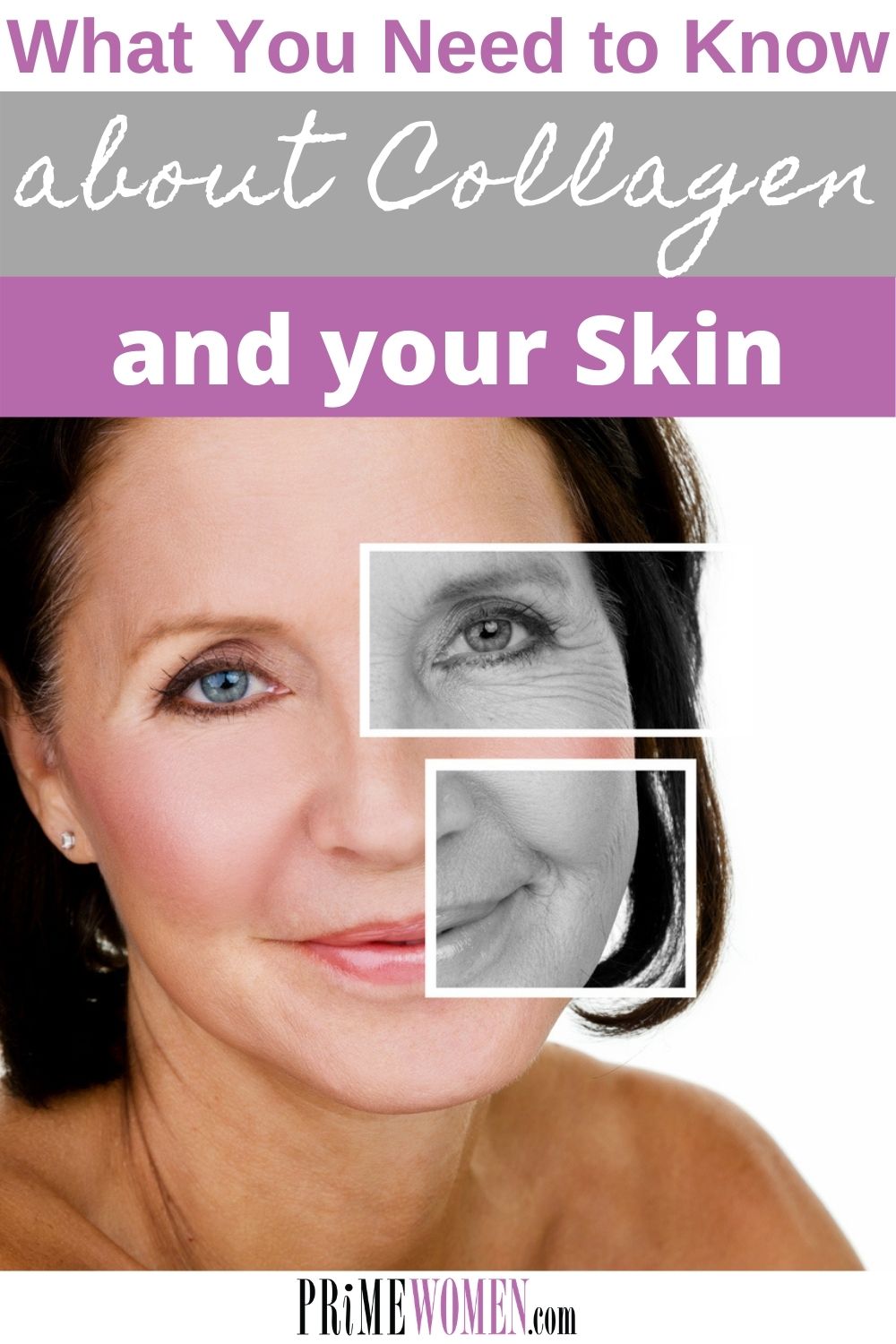Thank you to Collagen For Her for sponsoring this post to share more information about the benefits of collagen and skin for women over 50.
One of the most evident signs of aging is also one of the most perplexing to address: wrinkles. Though considered to be part of the natural aging process, wrinkles can make you look — or at least feel — older than you already are. Even though wrinkles are often the result of environmental factors that you don’t have control over — such as a lack of flexibility in the skin as you age and the breakdown of collagen and elastin due to the sun’s rays — this doesn’t mean that you don’t have any options. Taking collagen supplements is proving to be a real option but to better understand why this is the case, let’s first dive into the basics of collagen.
What is Collagen?
Collagen is the most abundant protein in our bodies. It is found in our muscles, bones, joints, and skin which is why it is often referred to as “the glue that holds our bodies together.” Without collagen, our bodies wouldn’t be able to perform many essential functions. Unfortunately, starting around the age of 25, our bodies naturally start making about 1% less each year. A lack of collagen production could be a contributor to signs of aging such as wrinkles, thinning hair, slower metabolism, joint pain, and poor digestion.
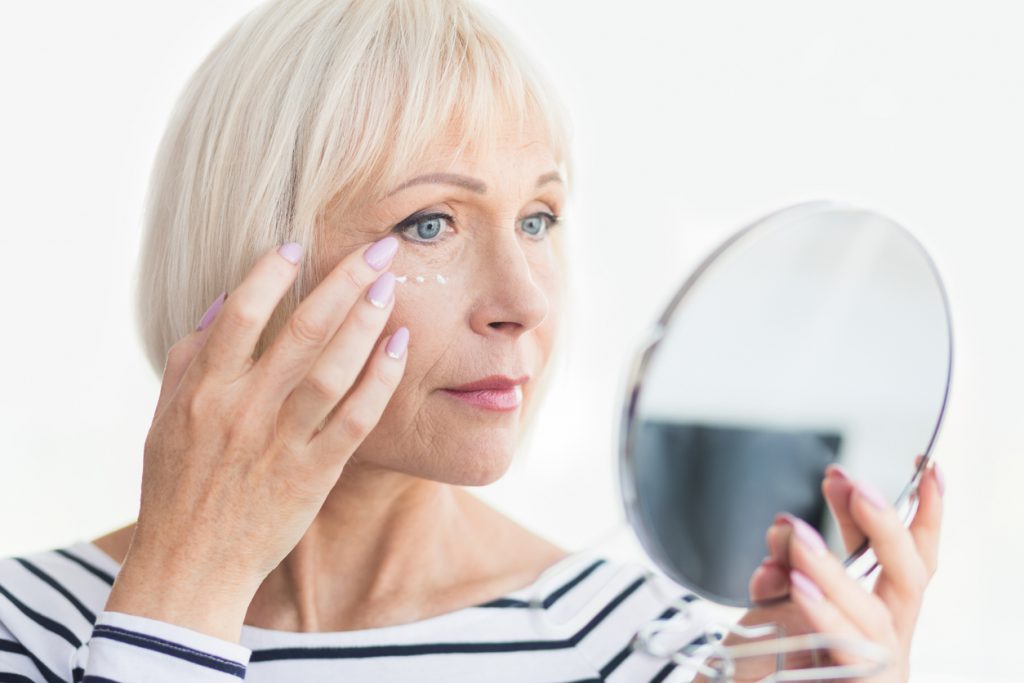
How Do I Get More Collagen?
Collagen is a protein that comes from animals, so one of the only ways to add collagen to our diet is to eat an abundant amount of animal protein. This includes the connective tissue where the collagen-rich proteins are most prominent. As a society, we are moving towards a more plant-based, lower meat diet, so it is becoming more difficult for people to get collagen from non-supplemental sources.
There are a variety of foods that can help boost collagen production; however, the easiest way to replenish the collagen that your body is naturally losing is with a pure collagen supplement. The essential amino acids in collagen peptides are quickly absorbed into the bloodstream and go to work repairing and rebuilding the connective tissue that are lacking the collagen they need.
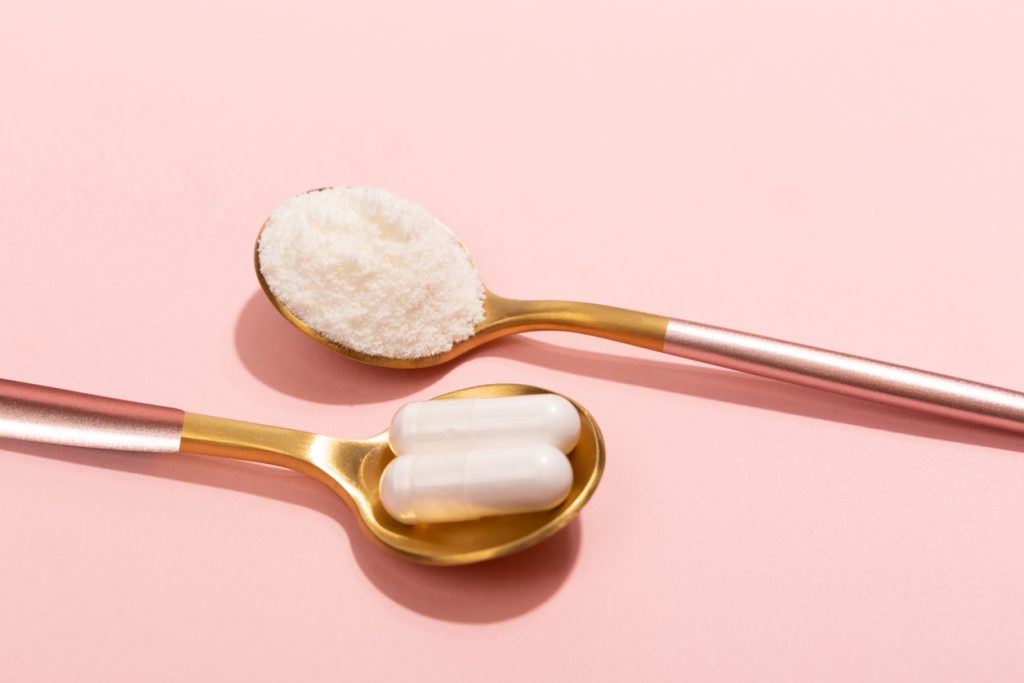
What are the Benefits of Collagen Supplements?
Collagen is most widely known for its benefits for hair, skin, and nails but there’s plenty of anecdotal and science-backed evidence that collagen can help in other ways, including:
- Promote hair growth as well as healthier, shinier, and fuller hair*
- Improve skin elasticity and the appearance of skin*
- Strengthen nails*
- Reduce joint pain and degeneration*
- Regulate digestion and boost metabolism*
- Improve gut health and immune system*
- Support heart and liver health*
“As most of us age, our knees, backs, etc. start to hurt. I have noticed a big difference with my knees while taking collagen.” – Dr. Bethany Johnson
Collagen as a Wrinkle Reducer
Collagen — in the form of either a powder or a pill — is a supplement that has been gaining more attention as a way to address aging skin. And why not? Collagen already occurs naturally in your body and is its most abundant source of protein. Because collagen plays a vital role as the skin’s structural support, a decrease in its levels leaves your skin more prone to the fine lines that can lead to deeper wrinkles. Drinking collagen peptide powder or taking collagen pills regularly can boost your skin’s elasticity and increase the process your body uses to repair your skin. But how much collagen should a 60-year-old woman take, and how should it be ingested?
When it comes to the best collagen for 50+-year-old women, collagen powder is pretty simple. It is flavorless and tasteless, so you can add it to your morning coffee, tea, or smoothie. The versatility of the powder also means you can add it to oatmeal, soup, sauces, baked goods, and more. Most women will see benefits by taking one scoop a day (around 11g of collagen) but consistency is the most important factor in seeing results. It is recommended to take collagen daily for a minimum of three months before expecting to see any changes.
Collagen masks and creams have been shown to make the skin look more youthful but because topical application of collagen cannot actually break the skin’s barrier, the long-term effects of topical collagen are still to be determined. Adding collagen supplements, though, in the form of collagen powder or pills, provides your body with the extra support it needs for its natural production if your diet isn’t able to do so. Because you’re ingesting collagen supplements, it reaches your system more quickly.
Collagen Powders vs. Collagen Pills
Those women who find themselves on the go might find the collagen pills suit their lifestyle better. The main difference between collagen powders and collagen pills is that powders most of the time contain more grams of collagen per serving. One scoop of unflavored collagen peptide powder contains 11g of collagen whereas one serving (three capsules) of these collagen pills contains 1500mg.
This doesn’t mean that pills aren’t effective but because the grams of collagen are lower, it just may take a longer period of time to see results. There is no wrong way to take collagen, so it really just depends on personal preference. A little bit of collagen is better than no collagen at all! You can also use both pills and powder, either together or by alternating them.
Does Collagen Work?
Just like almost any discovery, there is some skepticism regarding the effectiveness of adding collagen to your diet. Well, these days everyone from actresses like Jennifer Aniston to the members of the PrimeWomen Facebook group is enthusiastically embracing the youthful effects of collagen powder.
Not all collagen is created equal though, and the effectiveness of a certain supplement is highly reliant on how bioavailable it is, meaning how much of it is actually absorbed by your body. There are many different factors that can affect how bioavailable a supplement is, including the formulation, the delivery method, interactions with other substances in your system, gastrointestinal health, etc. Supplements that have been formulated with a higher bioavailability will be more effective because they help the body to absorb more of the substance without having to take higher doses.
For example, if there are two different collagen supplements that both contain 11g of collagen per serving but one is 80% bioavailable and the other is only 40% bioavailable, you will have to take a higher dose of the less bioavailable supplement in order to have the same effect. A substance will only take effect if it can be absorbed by the body, so bioavailability is a very important factor in how effective a supplement will be in delivering results and benefits.
You can read more about the bioavailability of one of our favorite brands for women, Collagen For Her, here.
Bovine, Marine, and Vegan: What to Know About the Different Types of Collagen
As you research more to learn which collagen supplements best meet your needs, you’ll realize that there are several types available.
Bovine Collagen
Bovine collagen is made from cows, which is similar to the process used to make most gelatin. Because a variety of parts from the cow are used, to get the best quality, only use collagen powder from a grass-fed pasture-raised source. You want to look for a pure bovine collagen powder like this one from Collagen For Her that is non-GMO, grass-fed pasture-raised, gluten-free, dairy-free, sugar-free, and paleo friendly. Bovine collagen contains both Type 1 and Type 3 collagen. Type 1 is the most common type of collagen in the body — primarily hair, skin, and bones —while Type 3 is found mostly in your intestines. Bovine also tends to be slightly less expensive so it’s an ideal option if you’re on a budget.
Marine Collagen
Marine collagen is also made from animals — fish in this case. Because marine collagen is made of bones, scales, or skin, it’s an ideal choice for pescetarians. Marine collagen is made up of only Type 1 collagen. This type is also more environmentally friendly because about 60 percent of the by-products of fish processing become water.
Since we are talking about skin, we want to mention this marine collagen powder because it has added ingredients to benefit hair, skin, and nails. In addition to fish collagen, it contains 100% daily Vitamin C, biotin, and hyaluronic acid, so it is a great option for any woman looking for extra help in these areas!
Vegan Collagen
It is important to note that collagen is a protein that comes from animals, so there is currently no known source of vegan collagen. While you may see some “vegan collagen” options on the market, keep in mind that these products do not actually contain any collagen. When shopping for collagen products, always check the supplement facts to see how many grams of collagen there are per serving. If there is no collagen listed on the supplement facts panel then that product does not actually contain collagen.
Multi-Type Collagen
There are some collagen products that combine all the source types so that your body gets benefits from them all. The difference between the various types of collagen is the source, so a product that contains all five types of collagen, like these multi-collagen capsules, will contain collagen from many sources such as bovine, fish, chicken, and eggshell.
Collagen is an element that’s vital to your skin’s healthy look and feel. Adding a collagen supplement to your diet is an easy and effective way to boost your intake while reaping its benefits. If you are looking for a product that is high quality, bioavailable, and made for women, be sure to check out Collagen For Her. They have something for every woman!
*Disclaimer: Statements made, or products sold through this website, have not been evaluated by the United States Food and Drug Administration. They are not intended to diagnose, treat, cure or prevent any disease.
Read Next:
How Much Collagen Do You REALLY Need Each Day?


